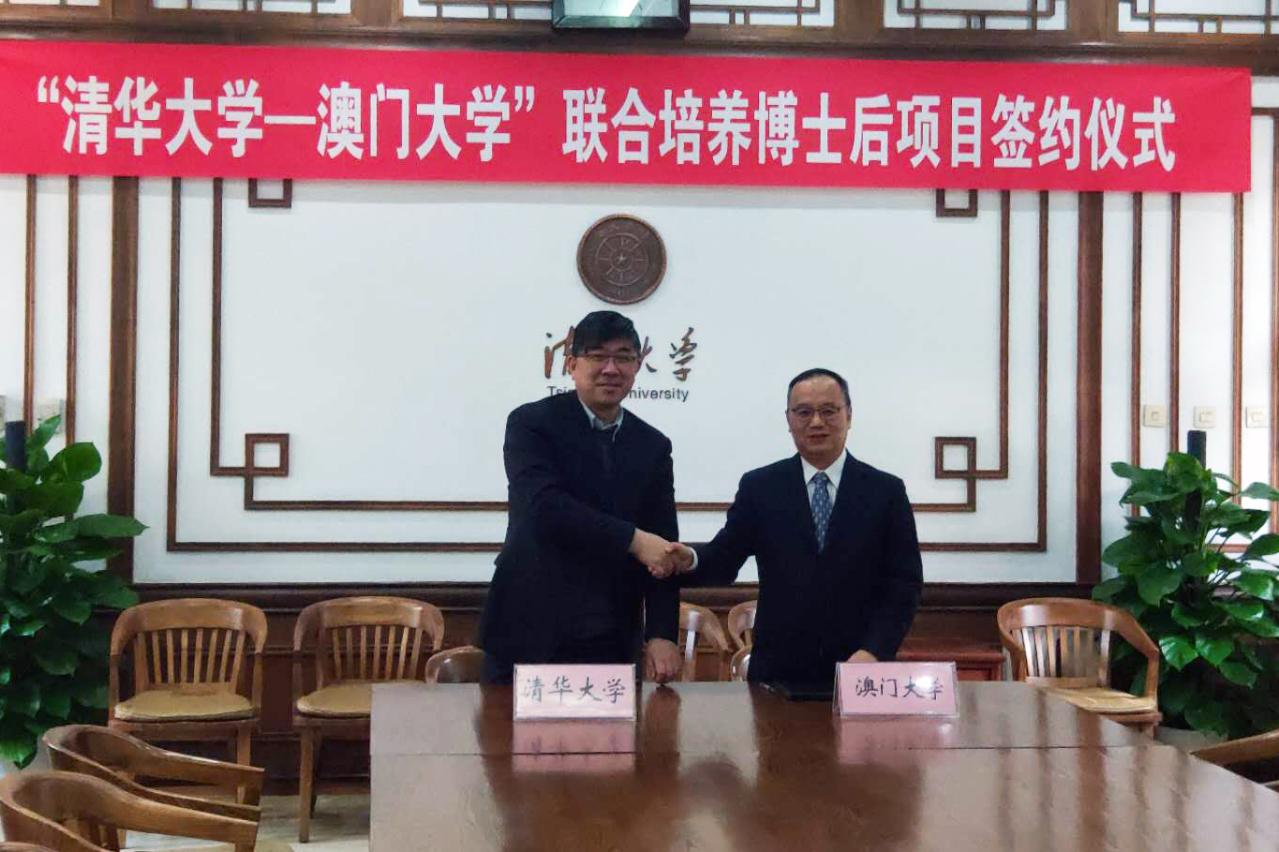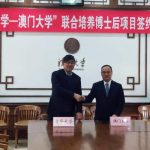 UM and Tsinghua University collaborates on postdoctoral training
UM and Tsinghua University collaborates on postdoctoral training
The University of Macau (UM) and Tsinghua University have signed an agreement on the joint training of postdoctoral scholars. According to the agreement, UM and Tsinghua will jointly fund postdoctoral programmes, with the combined strengths and resources of the two universities in certain disciplines, including engineering, materials science, information science, and life science. The two universities will collaborate in cutting-edge research and postdoctoral training, in order to promote the development of strategic scientific research in China.
The agreement signing ceremony was held at Tsinghua University. UM Rector Yonghua Song and Tsinghua University Vice President Zheng Li signed the agreement on behalf of their universities. Zheng mentioned the solid foundation in collaboration between the two universities, as reflected in the frequent exchange of faculty and students. He hopes that collaboration in postdoctoral training will help both universities explore new modes of collaboration in the development of academic disciplines and in scientific research, further enhance Tsinghua’s communication and collaboration with UM and Macao, and promote the joint development of both institutions.
Song says that with the great support of the central and Macao SAR governments, UM has made significant progress in creating better conditions for teaching and learning, in developing an outstanding faculty team, and in scientific research. He believes that the collaboration agreement with Tsinghua University will enable UM to participate in China’s cutting-edge scientific research projects, thereby providing a foothold from which the university can further integrate into the Greater Bay Area and the rest of China and become more internationalised. Song hopes Tsinghua will continue to support UM’s development.
Both universities have been intensifying efforts in innovation and technology and have been actively involved in the construction of the International Innovation and Technology Hub in the Greater Bay Area. In recent years, UM has achieved fruitful and internationally impactful results in scientific research, and has garnered maters in various disciplines and high-calibre researchers. In addition, UM has established three state key laboratories, in microelectronics, Chinese medicine, and the Internet of Things for smart cities, respectively. The university continuously explores new research areas, with leading achievements in precision medicine for tumour treatment, advanced materials, cognitive neuroscience, and artificial intelligence. Tsinghua University has achieved pioneering achievements in major basic research projects, strategic high-tech products, and serving economic development. Many of its academic disciplines are either ranked among the top in China or enjoy great renown internationally. In addition, Tsinghua University makes an active effort to commercialise the results of scientific research in the areas or companies with which the university is in a collaborative relationship.


